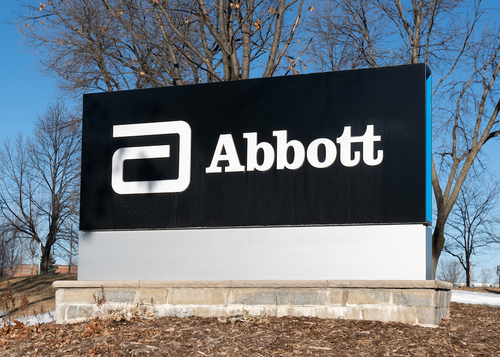A Covid-19 test Detroit has heavily relied on to contain outbreaks in its police force and nursing homes missed nearly half of all positive cases in a recent study by New York University.
More than 8,000 city employees and residents have been tested using the Abbott ID Now — about 20 percent of all people tested by the city. Detroit became the first municipality to deploy the 15-minute tests in early April, with Mayor Mike Duggan calling them “a game-changer for the country.”
The Food and Drug Administration initially gave emergency use authorization to the tests, but now urges caution. It opened its own probe into their accuracy this week.
The NYU study, which has yet to be peer-reviewed, found the Abbott test missed 48 percent of positive cases detected by a separate test, the Cepheid Xpert Xpress, whose results take longer to process.
It's the first academic review to handle samples the same way Detroit does. Swabs were taken from 101 emergency room patients exhibiting Covid-19 symptoms, transported dry in a sterile tube and tested on an Abbott machine within 2 hours. Duggan has said Detroit transports its swabs dry in a “bag” and tests them within 24 hours.
The dry method, which is encouraged by Abbott, was found to be the least effective of several methods studied.
The researchers, clinicians at NYU Langone Health, said the findings make the test "unacceptable" for use with their medical center patients. The author of a separate Cleveland Clinic study that found the rapid tests 85-percent accurate has previously said that hospital system relies only on tests with an accuracy rate of 95 percent or above.
Despite the results and note of caution from the FDA, Duggan says Detroit will continue using the tests.
“Our experience is that the Abbott tests are identifying the sick people and are not having any significant false negative rates, so we’re entirely confident,” he said at a Friday news conference.
Duggan has previously pointed to Illinois-based Abbott’s own data as evidence the ID Now tests are 90 percent accurate.

(Photo: Abbott Laboratories)
He pushed back on the NYU study, noting it was not peer-reviewed, but went on to counter its claims with anecdotal evidence of waning infection rates within the Detroit Police Department, whose officers underwent widespread rapid testing using the Abbott machines. He said officers Abbott found negative did not go on to show symptoms. Officers are screened for fever when they arrive at work.
Duggan also cited a recent city and Michigan Department of Health and Human Services study that he claims shows the test rarely produces false negatives, though it too is not peer-reviewed and a leading expert in the testing field has raised doubts over its methodology.
The Detroit study, led by city medical director Dr. Najibah Rehman, found 48 samples that tested negative at state labs, which are known for their high rate of accuracy, also tested negative with Abbott. The samples were collected from first responders and essential workers including public transit employees. They did not need to exhibit symptoms to be included.
The testing expert, who asked not to be identified because a media comment wasn't cleared by hospital officials, said the Detroit study was flawed because it did not examine enough people who were likely to be sick.
“Testing only 50 asymptomatic individuals is far too few,” said the expert. “Also, very, very few asymptomatic individuals will be positive for SARS-CoV-2, so this is not the best population in which to validate a test. Sick patients must be included to determine the performance of a test.”
The city did not immediately respond when asked whether it would consider conducting another study.
The Trump administration, which uses the tests to check the president and his staff for Covid-19, has also defended the results they produce. Health and Human Services Secretary Alex Azar — who’s widely blamed for catastrophic testing delays at the onset of the outbreak — recently said he “has confidence" in Abbot, because “otherwise it wouldn’t be on the market.”
The White House’s press secretary, meanwhile, said “user error” may have skewed some of the studies, “meaning that the time transporting them might have affected the accuracy of the test.”
The Michigan Department of Health and Human Services also says there are "some concerns" about the methodology and sample types used in some recent reports.
"While we agree that rapid tests have lower sensitivity and specificity as a whole than traditional tests, it should be noted that all tests have some problems," MDHHS said in an emailed statement.
"When used in the correct context with appropriate educational material being returned to a patient regarding risk, follow-up and potential future tests, the Abbott system is a good tool in our toolbox to confront testing challenges and long-term needs in the state."
MDHHS says it has performed two side-by-side comparison studies using both the Abbott and standard COVID-19 tests, with all but one of 82 people tested around the state showing the same results across both tests. However, it conceded that sample size was "not ... ideal," and that number included the 48 people tested in Detroit.


 by
by








